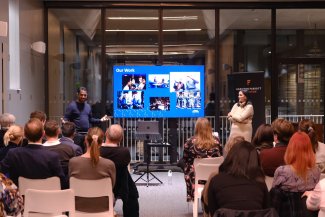Key Statistics and Trends in Music Education and the Classical Music Industry
22/10/2024

(England & Wales)
Music GCSE, AS, and A‑Level Uptake
- GCSE Music: The number of students taking GCSE Music has been declining for over a decade. Between 2012 and 2022, there was a 19% decrease, and since 2010, entries have fallen by 27%. In 2022, 38,569 students took GCSE Music, a slight drop from 2021.
- A‑Level Music: The situation is even more concerning at the A‑Level, with a 45% reduction in students taking the subject since 2010. In 2021, 5,686 students took A‑Level Music, a 32% drop since 2014. Many schools no longer offer the subject due to its exclusion from the EBacc, a measure that prioritizes core subjects like maths and sciences over the arts.
Higher Education: Music Degrees
Music as a Degree subject has seen declining enrolment as well. While specific statistics for 2024 have not yet been published, earlier reports suggest a consistent downward trend, reflecting the challenges faced by the music education pipeline.
Source: UK Music
Background of Classical Music Industry Workers
There is limited specific data on the exact educational backgrounds of classical music industry professionals. However, it’s clear that the classical music sector draws individuals from diverse educational fields:
- While many performers, conductors, and composers have formal music qualifications, others enter the industry with degrees in unrelated areas such as humanities or even STEM subjects.
- Moreover, some successful industry figures come from non-traditional academic backgrounds or have no degrees at all, particularly in roles like artist management, where business and communication skills may be prioritised.
EDI and Inclusion and Access in the Classical Music Industry
The classical music sector has previously been criticised for its lack of diversity, with efforts being made to improve equity, diversity, and inclusion (EDI):
- Ethnic Diversity: Representation of ethnic minorities in classical music is still low compared to other creative sectors. According to the Arts Council’s 2020 report, only about 8% of orchestral musicians were from Black, Asian, or ethnically diverse backgrounds.
- Gender: Progress is being made in terms of gender balance, particularly for conductors and soloists, but the industry remains male-dominated, especially in leadership roles like music directors.
Overall, these trends highlight the need for action to support music education and enhance diversity in classical music. Efforts are being made to reverse the decline in arts subjects and to make the industry more inclusive and representative of modern society.
At HarrisonParrott, we have a lively and vibrant Access and Inclusion forum, as well as the HarrisonParrott Foundation, which works to reduce access barriers at all levels of the music education and industry talent pipeline.